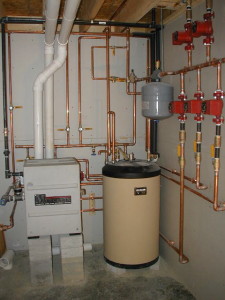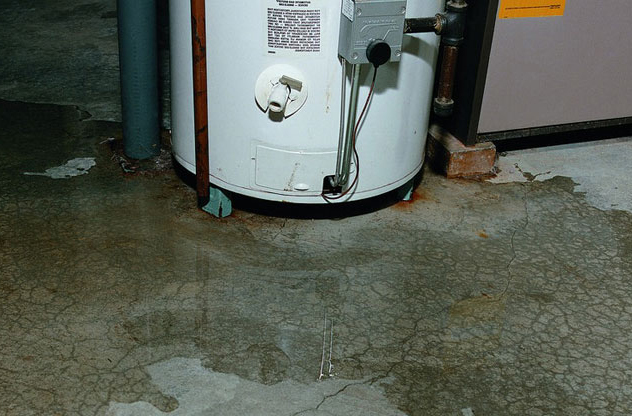We have found this great article pertaining to Maintaining & Draining a Water Heater directly below on the net and reckoned it made perfect sense to share it with you here.

Whether it is located in the basement or a different room, busted hot water heater can cause stress and anxiety. A typical device holds 80 gallons, so an over night leak will certainly lead to a flooding. This leads to major building damages with drenched wall surfaces and floorings. Having no warm water supply is also problematic. If you are managing these issues, take note of the following:
Call the Plumber
After doing the first 2 safety steps, you should call your plumber to come right away to repair a fractured water heating unit. There are typically indications that your aging water heating unit has sediment accumulation in the interior.
Don't await significant flooding to call the plumber. Already, you will certainly need to invest more to restore your building. Rather, as quickly as you find these signs, have actually a specialist involved examine your water heater container. Typically, water heaters have a life-span of concerning 8 to 12 years. With routine assessment and also maintenance, you can lengthen its life.
Cut Off the Cold Water Supply
Cut off the containers touch water supply from the source. When your container is in good problem, the cool water stops loading up when the storage tank is full. If you can not discover it or reach it, you need to turn off that primary water supply line outside your residential property.
Shut Off Power Source
Prior to calling the plumber, closed off a gas water heating unit by transforming the temperature dial. This will prevent electrocution, especially if there is a leak as water is a conductor. Usually, the heating element shuts off when the water strikes a certain temperature level.
Clean Up Property
After calling the plumber, file damage by keeping in mind and images so you can claim your home owner's insurance coverage. From there, start the prompt clean-up. Secure any kind of crucial belongings to prevent additional soaking. After that, remove any type of standing water to avoid mold and mildew and also mildew growth. Utilize that to drain the water if you have a completely submersible water pump. Otherwise, the conventional container approach will likewise function. Attempt to wipe out every little thing, consisting of baseboards and also wall surfaces. Keep them running to maintain air distributing if you have an electric fan as well as dehumidifier. This will assist prevent mold development.
Bear in mind, if you see any problems with your hot water heater, call the pros right now. You can not take this trouble lightly because a damaged thermostat can raise water temp to a dangerously high level, resulting in unintended burns. A broken heating system pressure relief valve can also cause a surge. For best results, obtain an annual check so your device gets evaluated, cleaned up, drained, and also filled up, assuring optimal efficiency.
After doing the very first 2 safety actions, you need to call your plumber to come right away to take care of a burst water heater. Rather, as soon as you identify these indications, have an expert come to check your water heating unit storage tank. Prior to calling the plumber, closed off a gas water heater by turning the temperature dial. If you have a completely submersible water pump, utilize that to drain the water. Keep in mind, if you discover any kind of concerns with your water heating unit, call the pros right away.
When You Should Turn off Your Water Heater
When the main water supply is shut off
There are many circumstances in which the main water supply is turned off. When this happens, many homeowners wonder if it’s safe to keep the water heater on of it should be shut down too.
In most cases, it may not be necessary to turn off the water heater, but it also won’t hurt, either. However, there are two reasons when you should turn off the unit to prevent too much pressure or heat from building up inside the tank:
When there’s a leak
If your water heater springs a leak due for a variety of reasons, including age or a valve malfunction, you should always turn off the unit and shut off the water supply until the issue is resolved.
https://www.libertyplumbingheatingandair.com/blog/when-you-should-turn-off-your-water-heater/

I recently found that review about What Do You Do When Your Water Heater Bursts? when browsing the internet. Sharing is nice. Helping others is fun. Thanks so much for going through it.
Avoid disaster, Call us!